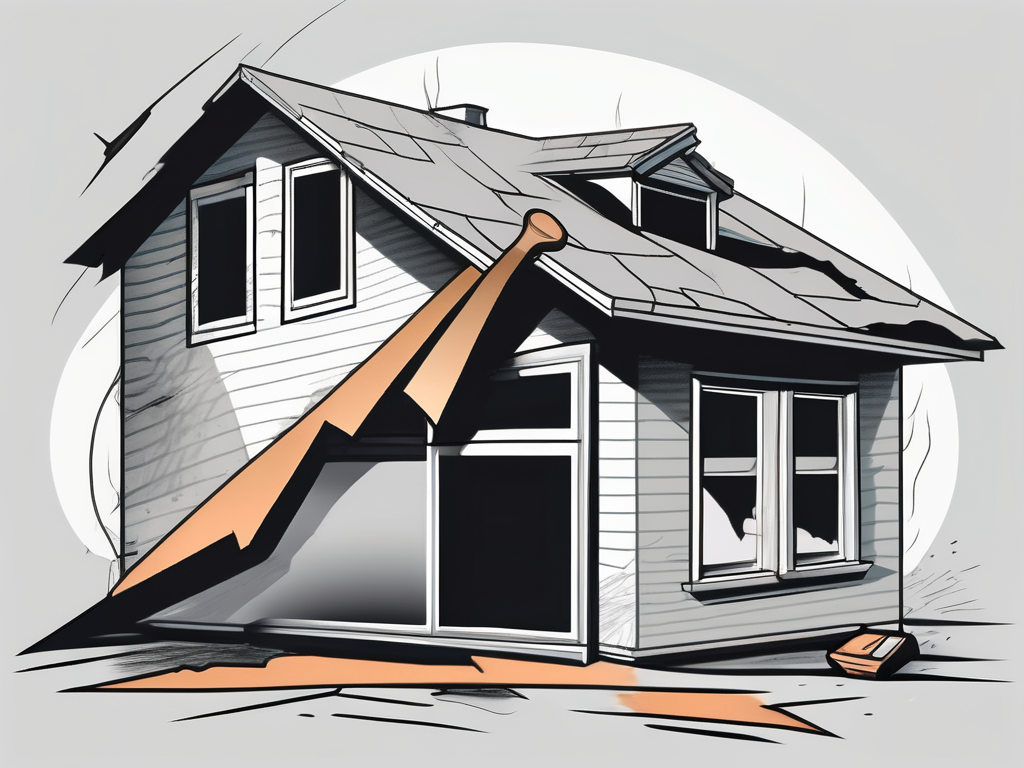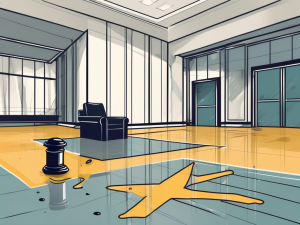If you ever find yourself in a situation where your property insurance company is pressuring you into unnecessary repairs, it’s crucial to understand your rights and explore your available options. This article aims to guide you through the process of handling such a situation and offers valuable tips to prevent future disputes.
Understanding Your Property Insurance Policy
Before delving into the process of addressing unwanted repairs, it’s imperative to have a comprehensive understanding of your property insurance policy. Take the time to familiarize yourself with the key terms and provisions within it.
Property insurance functions as a protective coverage for your property against various risks, including fire, theft, and natural disasters. It provides financial compensation for the damages or losses you may incur. However, the specifics of your policy can vary based on the insurance company and the type of coverage you’ve chosen.
While reviewing your insurance policy, pay close attention to key terms outlining coverage details, deductibles, exclusions, and the claims process. These terms are pivotal in determining the extent of your coverage and the necessary steps in the event of a claim.
Key Terms in Your Insurance Policy
Your insurance policy likely includes specific terms outlining coverage details, deductibles, exclusions, and the claims process. Take the necessary time to carefully review and comprehend these terms to avoid misunderstandings later on.
One crucial term to understand is “coverage,” which refers to the types of risks or perils your insurance policy protects against. Common coverage types include property damage, liability, and loss of use.
Deductibles are another key term to be aware of. This represents the amount of money you are responsible for paying out of pocket before your insurance coverage kicks in. Understanding your deductible amount and how it applies to different claims is essential.
Exclusions are specific situations or circumstances not covered by your insurance policy. These may include intentional acts, wear and tear, and certain natural disasters. Familiarizing yourself with the exclusions in your policy helps you understand what may not be covered.
The claims process is the procedure to follow when filing a claim with your insurance company. Knowing the steps involved, such as promptly reporting the claim, providing necessary documentation, and cooperating with the insurance adjuster, is crucial.
The Role of Your Insurance Company
Insurance companies play a vital role in processing and evaluating claims, employing insurance adjusters who assess damage and recommend repairs.
When you file a claim, an insurance adjuster is assigned to your case. They visit your property, inspect damages, and gather evidence, which may include photographs, interviews with witnesses, and a review of relevant documents.
Based on their assessment, the insurance adjuster determines the recommended repairs or replacements necessary to restore your property, considering the terms of your insurance policy and any applicable deductibles or exclusions.
Once the recommended repairs are established, the insurance company collaborates with you to process the claim and provide the necessary funds to cover costs. Maintaining open communication with your insurance company throughout the claims process ensures a smoother resolution.
Remember, your insurance company is there to help you navigate the claims process and offer the financial support needed to restore your property. Understanding their role and the terms of your policy empowers you to make informed decisions and protect your interests.
The Process of Property Insurance Claims
When initiating an insurance claim, having a comprehensive understanding of the process can empower you to navigate it effectively and safeguard your interests. Property insurance claims, while often intricate and time-consuming, demand a thorough awareness of the steps involved to guarantee a seamless and successful resolution. Let’s delve into the intricacies of the process to provide you with a clearer understanding of what to anticipate.
Reporting a Claim
In the event of property damage, prompt notification to your insurance company is imperative, as it initiates the entire claims process. When reporting the claim, ensure you furnish your insurance company with a meticulous account of the damage, supplemented by supporting evidence such as photographs or videos.
Keep in mind that the comprehensiveness of the information you provide is key. Include specific details regarding the incident, including the date and time it occurred, along with any other pertinent information that can assist your insurance company in accurately assessing the situation. The more thorough and precise your account, the better equipped your insurance company will be to handle the claim effectively.
The Insurance Adjuster’s Role
Following the reporting of your claim, an assigned insurance adjuster takes center stage in the claims process, holding the crucial responsibility of assessing the damage and determining the compensation to which you are entitled.
When the insurance adjuster arrives at your property, a comprehensive inspection is conducted to evaluate the extent of necessary repairs. Your presence during this assessment is vital to ensure accuracy; it allows you to provide additional information and address any queries the adjuster may have.
During the inspection, the adjuster meticulously examines the damage, documenting conditions through notes and photographs. They may also seek input from experts like contractors or engineers for a professional perspective on required repairs. Various factors, including the age and condition of your property, material and labor costs, and applicable deductibles or policy limits, are considered in calculating the compensation you are eligible to receive.
It’s important to bear in mind that the insurance adjuster works for the insurance company, prioritizing the company’s interests. However, they are also entrusted with ensuring a fair and accurate assessment of the damage.
Upon completing the assessment, the insurance adjuster compiles a detailed report outlining their findings. This report becomes instrumental in the insurance company’s determination of the compensation allocated for the repairs.
Carefully review the adjuster’s report, ensuring that all damages and necessary repairs are accurately represented. If you believe certain damages were overlooked or the offered compensation is insufficient, exercise your right to negotiate with the insurance company for a fair resolution.
Acknowledging that the claims process can be time-consuming, maintain regular communication with your insurance company. Keep detailed records of all correspondence, including emails and phone calls, and document any agreements or promises made by the insurance company.
By comprehending the property insurance claims process and proactively providing accurate information and documentation, you enhance the likelihood of a successful and satisfactory resolution to your claim.
When Your Insurance Company Recommends Repairs
In certain situations, your insurance company might suggest repairs that you perceive as unnecessary or excessive. It’s crucial to delve into the reasons behind these recommendations and be aware of your rights and responsibilities as a policyholder.
Reasons for Recommended Repairs
Insurance companies may advise repairs based on various factors, encompassing the extent of the damage, safety considerations, and compliance with building codes. Understanding the rationale behind their recommendations is essential for making informed decisions.
When evaluating the extent of the damage, insurance companies not only assess visible issues but also consider potential underlying problems that may arise if repairs are not conducted properly. Their goal is to ensure your property is restored to its pre-damage condition, addressing any hidden damage to prevent future issues.
Safety concerns represent another critical aspect in the decision-making process. Insurance companies bear the responsibility of safeguarding you and your property. Consequently, if there are repairs that could pose risks to your safety or that of others, prompt attention to these issues is likely to be recommended.
Additionally, compliance with building codes is a pivotal consideration for insurance companies. Building codes are established to guarantee that structures are safe and meet specific standards. If recommended repairs are deemed necessary to bring your property up to code, adhering to these requirements becomes crucial to sidestep potential legal or safety complications in the future.
Your Rights and Responsibilities
As a policyholder, you possess certain rights throughout the repair process. You have the authority to request alternative repair options or seek a second opinion. Insurance companies recognize that there may be diverse approaches to addressing damage, and they are open to considering alternative solutions that still meet necessary standards.
Another right at your disposal is the option to seek a second opinion. If you harbor doubts about the recommended repairs, consulting with another professional can provide an alternative perspective. This allows you to better understand the situation and make an informed decision regarding the necessary repairs.
However, it’s crucial to acknowledge that as a policyholder, you also bear responsibilities. One such responsibility is to mitigate further damage to your property. This entails taking immediate action to prevent any additional harm from occurring. For instance, if there’s a leak in your roof, it’s your responsibility to take steps like temporarily patching it or covering it to prevent water from causing further damage.
Equipped with a clear understanding of your rights and responsibilities, you can navigate the repair process with confidence. Open communication with your insurance company is vital; don’t hesitate to ask questions and seek clarification when needed. Remember, their ultimate goal is to assist you in restoring your property and ensuring your safety.
Disputing Unwanted Repairs
In the event of disagreement with the recommended repairs, you maintain the right to dispute them. Following the appropriate steps can facilitate the resolution of the issue, ensuring that your property is repaired to your satisfaction.
In the realm of property repair, it is imperative to possess a clear understanding of your rights as a policyholder. There may be instances where insurance companies suggest repairs that you deem unnecessary or excessive. In such cases, knowing how to effectively dispute these unwanted repairs becomes essential.
Steps to Dispute a Repair
Initiate the dispute process by engaging in a discussion with the insurance adjuster. It is crucial to maintain open lines of communication and express your disagreement in a professional manner. Clearly articulate your concerns regarding the recommended repairs, providing specific reasons for your dispute, and present any supporting evidence you may have.
Supporting evidence can take the form of expert opinions or contractor estimates that counter the suggested repairs. These documents serve to fortify your case, offering a solid foundation for your dispute. Present this evidence to the adjuster in a clear and organized manner, enhancing the effectiveness of your communication.
If the adjuster remains unresponsive or dismissive of your concerns, escalating your complaint may become necessary. Consider requesting to speak with a supervisor or claims manager, individuals with greater authority who can address your dispute more effectively. In advocating for your position, be persistent and ensure that your voice is heard throughout the escalation process.
Seeking Legal Advice
In cases where disputes persist and resolution seems elusive, seeking legal advice becomes a prudent course of action. Consulting with an attorney specializing in insurance claims can offer valuable guidance and support.
Our experienced attorneys can assess your options and assist you in determining the best course of action. They will meticulously review your policy, analyze the recommended repairs, and provide advice on the strength of your dispute. With their expertise, you can make informed decisions and navigate the intricate legal landscape associated with insurance claims.
It’s essential to recognize that disputing unwanted repairs is your right as a policyholder. By diligently following the appropriate steps and seeking legal advice when necessary, you can ensure that your property is repaired to your satisfaction.
Preventing Future Disputes
To minimize the likelihood of facing unwanted repairs and disputes with your insurance company, proactive measures can be taken.
When it comes to safeguarding your property and ensuring a seamless insurance claim process, consider implementing several proactive steps. By taking these measures, you can effectively reduce the chances of encountering disputes and maximize the benefits of your insurance coverage.
Regular Property Maintenance
One of the most effective ways to prevent future disputes is by consistently maintaining your property. Regular inspections and prompt repairs can prevent small issues from escalating into larger problems. This proactive approach not only safeguards your property from damage but also ensures the maintenance of its value.
Regular property maintenance encompasses a variety of tasks, including checking for leaks, inspecting electrical systems, and preserving the structural integrity of your home. Staying on top of these maintenance tasks enables you to identify potential issues early and take the necessary steps to address them.
Moreover, keeping a detailed record of your maintenance activities can be beneficial. Documenting the dates and specifics of your inspections and repairs provides evidence of your proactive approach, proving valuable in the event of a dispute with your insurance company.
Reviewing and Updating Your Policy Regularly
Another crucial step in preventing future disputes is to regularly review and update your insurance policy. Over time, your needs and expectations may change, making it essential to ensure that your coverage aligns with these changes.
Periodic reviews of your policy enable you to assess whether it provides adequate protection for your property and belongings. If you have concerns or questions about the coverage or provisions, it’s crucial to contact your insurance company to seek clarification or make necessary updates.
Life circumstances, such as renovations, additions, or changes in the value of your property, can also impact your insurance needs. Keeping your policy up to date ensures that you can avoid potential disputes and guarantees that you are adequately covered in the event of a claim.
Understanding the terms and conditions of your policy is paramount. Familiarize yourself with coverage limits, deductibles, and exclusions to help prevent surprises or misunderstandings when filing a claim.
Key Takeaway: Proactive measures like regular property maintenance and reviewing your insurance policy can significantly reduce the likelihood of facing disputes with your insurance company. By being diligent and proactive, you can protect your property, minimize the risk of damage, and ensure a smooth insurance claim process.
Conclusion: Navigating Property Insurance Repairs
Dealing with unwanted repairs recommended by your property insurance company can indeed be frustrating. However, with a solid understanding of your policy, knowledge of your rights, and appropriate steps to dispute unwarranted repairs, you can navigate this process with confidence. Effective communication with your insurance company and seeking legal advice when necessary are crucial aspects. Regular property maintenance and policy reviews also play a pivotal role in preventing future disputes.
Stay informed, assert your rights, and take proactive steps to protect your property.
If you find yourself overwhelmed by the prospect of unwanted repairs being pushed by your property insurance company, remember that you don’t have to face it alone. The Ticktin Law Group is here to support you with a team of experienced attorneys dedicated to providing affordable legal representation tailored to your unique needs. We understand the intricacies of property insurance claims and are ready to help you assert your rights and protect your property. Contact us today to discuss your situation and discover the creative solutions we can offer.





